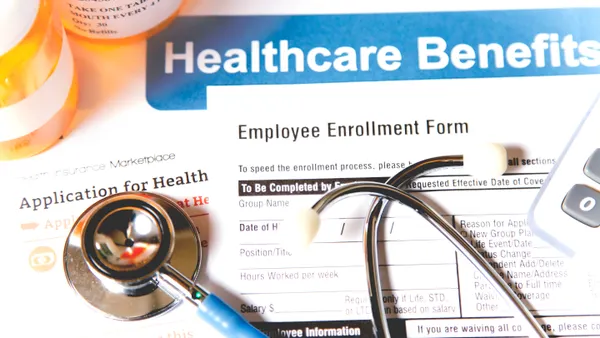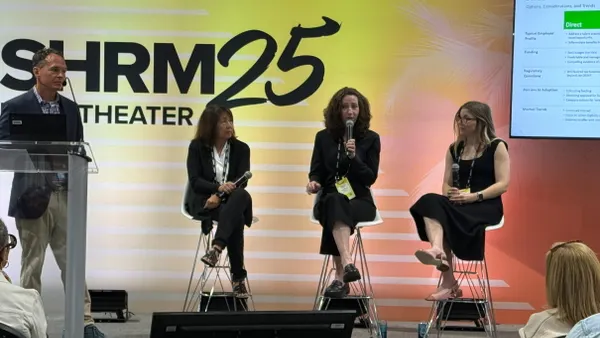Dive Brief:
- Uber is working to deliver employee benefits to its drivers to close the gap between contractors and employees, CEO Dara Khosrowshahi said during a session at Fortune's Most Powerful Women Summit Wednesday.
- It's part of Uber's effort to re-examine its relationship with drivers, whom Khosrowshahi called "partners." In a short video clip provided by Fortune, he referred to the company's recent efforts in Europe to offer drivers there protections like health insurance, maternity and paternity leave, and accident insurance. Uber currently insures U.S. drivers with vehicle-accident protection up to $1 million, according to The Wall Street Journal, and it offers some discounted insurance for disability or death of a driver.
- Khosrowshahi said the effort seeks to change an employment world in which employees are "haves" and independent contractors are "have-nots." "Where we would like to take independent contractors is to take it into a state where it’s not a have-not state, that you can create a framework of benefits, etc., around the work as well," he said.
Dive Insight:
Should Uber follow through on its effort to expand benefits for independent contractors, it could very well set a new standard in a gig economy that has struggled to fend off criticism of worker exploitation. Uber, of course, is no stranger to these criticisms; the company has been taken to court several times by drivers alleging they deserve to be considered an employee under the law. But this argument was recently dealt a significant blow in the U.S. by a federal appeals court that ruled in Uber's favor in September.
Trying to pin down exactly how much Uber drivers earn on the job compared to other workers has proved difficult for researchers. A recent analysis by the Economic Policy Institute put the figure at $9.21 an hour, less than the minimum wage in many large markets, according to The Chicago Tribune. This analysis followed a report by researchers at the Massachusetts Institute of Technology (MIT) that initially reported a figure of $3.37 an hour — revised to $8.85 an hour after a lead researcher admitted faults in the MIT team's initial survey of drivers. The researcher nonetheless called on Uber to be more transparent about the costs and expenses of its service.
Uber, meanwhile, has already joined calls to expand the concept of "portable benefits" in certain markets, including Seattle. Such a system would, in theory, be publicly funded and would allow workers to keep insurance coverage and benefits as they move between jobs or in and out of employment.
The company is likely making the benefits play as part of a larger turnaround effort following a sexual harassment scandal, the resignation of founder Travis Kalanick and the dismissal of top executives, including HR personnel. Uber made news earlier this week when it announced the hiring of a new chief of people, Nikki Krishnamurthy, who joins the company from Expedia.












